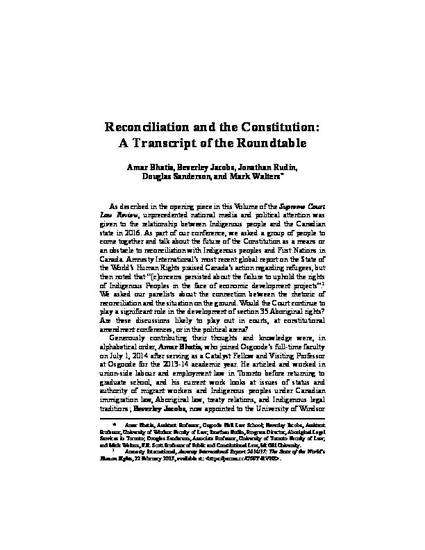
As described in the opening piece in this Volume of the Supreme Court Law Review, unprecedented national media and political attention was given to the relationship between Indigenous people and the Canadian state in 2016. As part of our conference, we asked a group of people to come together and talk about the future of the Constitution as a means or an obstacle to reconciliation with Indigenous peoples and First Nations in Canada. Amnesty International’s most recent global report on the State of the World’s Human Rights praised Canada’s action regarding refugees, but then noted that “[c]oncerns persisted about the failure to uphold the rights of Indigenous Peoples in the face of economic development projects”. We asked our panelists about the connection between the rhetoric of reconciliation and the situation on the ground. Would the Court continue to play a significant role in the development of section 35 Aboriginal rights? Are these discussions likely to play out in courts, at constitutional amendment conferences, or in the political arena?
Available at: http://works.bepress.com/amar_bhatia/7/
